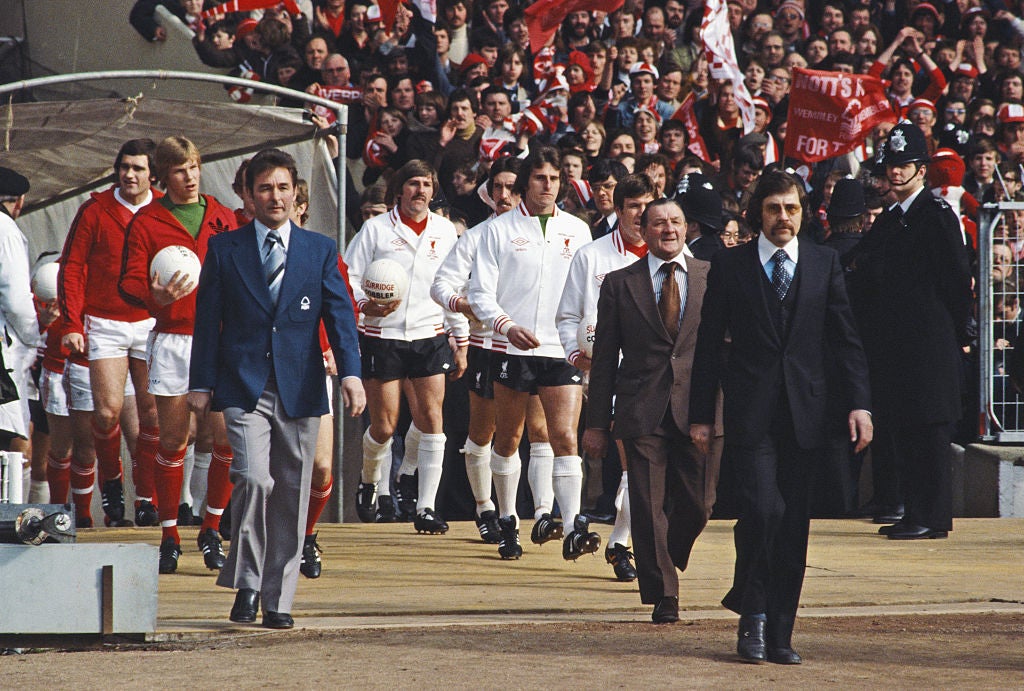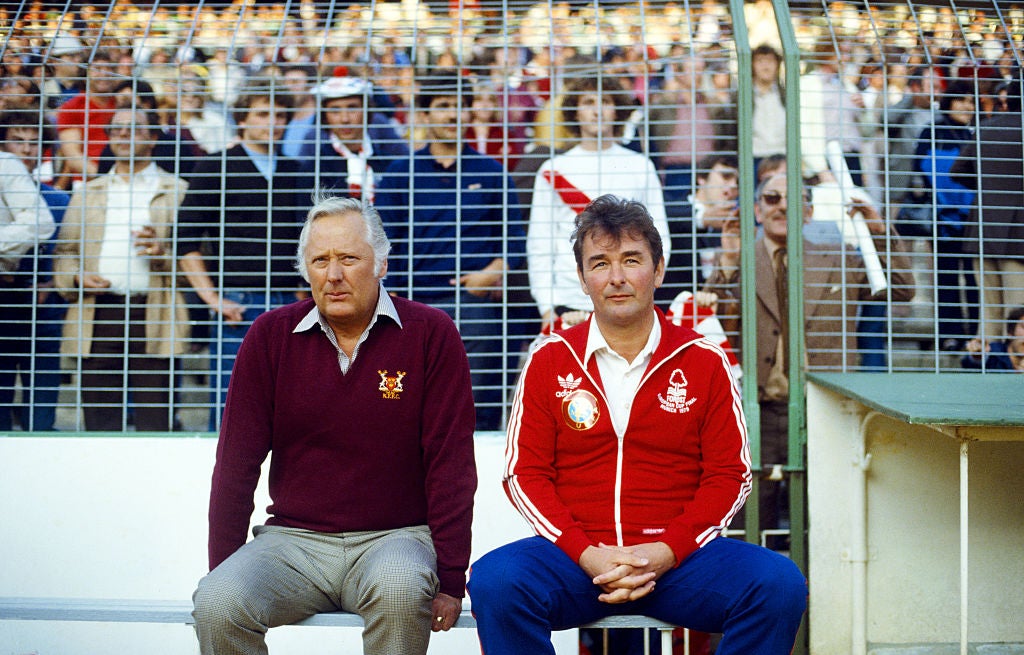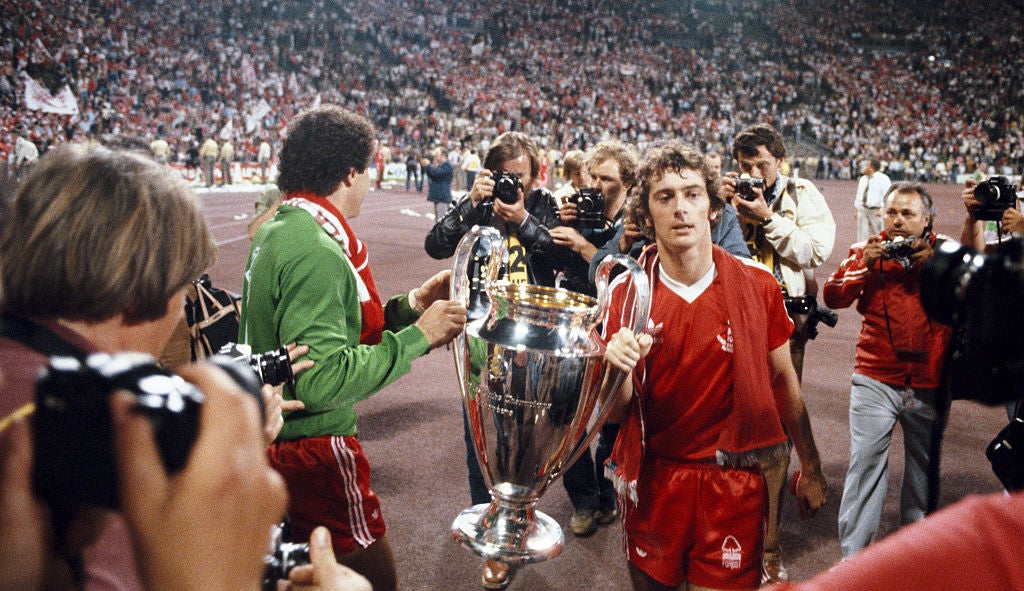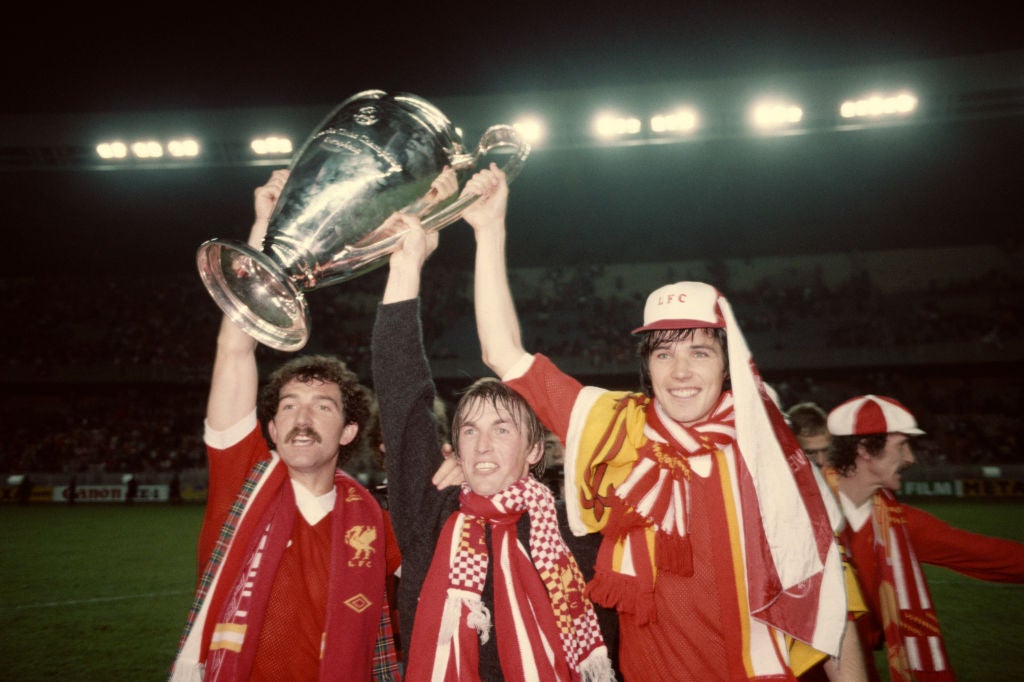Remembering when Liverpool and Nottingham Forest shared the biggest rivalry in Europe
After four years, 13 intense clashes, and three European Cups, Liverpool and Nottingham Forest’s rivalry could not have been more intense. It is why, 23 years after their last meeting, it will never be just another game

Your support helps us to tell the story
From reproductive rights to climate change to Big Tech, The Independent is on the ground when the story is developing. Whether it's investigating the financials of Elon Musk's pro-Trump PAC or producing our latest documentary, 'The A Word', which shines a light on the American women fighting for reproductive rights, we know how important it is to parse out the facts from the messaging.
At such a critical moment in US history, we need reporters on the ground. Your donation allows us to keep sending journalists to speak to both sides of the story.
The Independent is trusted by Americans across the entire political spectrum. And unlike many other quality news outlets, we choose not to lock Americans out of our reporting and analysis with paywalls. We believe quality journalism should be available to everyone, paid for by those who can afford it.
Your support makes all the difference.For a short spell, Nottingham Forest against Liverpool was the biggest game in European football. The rivalry could not have been more intense. In three seasons, the teams clashed 13 times. Every game was a battle.
Today, the clubs meet at the City Ground in the sixth round of the FA Cup. It is 23 years since they last played. Nevertheless, the memories of older supporters on both sides will ensure that the tie still has an edge.
Liverpool were title holders and European champions when Forest returned to the top flight in 1977. Brian Clough’s men sneaked up from the old second division by coming third and finishing in the last of the promotion places. No one expected what would happen next.
On the opening day of the season Forest went to Goodison Park and beat Everton 3-1. That caused hilarity among Liverpool fans returning from watching Kenny Dalglish make his debut in the 1-1 draw against Middlesbrough at Ayresome Park. It was the only time Clough’s team brought a smile to Kopite faces.
By the time the sides drew in the league on Boxing Day, Forest were top of the table. They steamrolled into 1978, dominating the division. They reached the League Cup final, too, where they faced the biggest test of the campaign: Liverpool.
An injury-ridden Forest could have lost by three goals at Wembley but hung on to draw 0-0 and force a replay. At Old Trafford they were on the positive end of two refereeing decisions. The east Midlands side were awarded a penalty when John O’Hare seemed to be fouled by Phil Thompson outside the box. John Robertson scored from the spot. Terry McDermott then had an equaliser disallowed for handball after appearing to chest the ball down. Forest collected the third trophy in their history against a team that had completed a treble the previous season.
The sense of grievance at Anfield was huge. Liverpool dominated both games. Forest had the cup.
Clough was flamboyant, loud, witty and, sometimes, obnoxious. His nickname was “Ol’ Big Mouth”. Bob Paisley, his Liverpool counterpart, was the opposite. Paisley tried to avoid publicity and downplayed his own impact. There could not have been a bigger contrast between the two finest English managers of the post-war era.
The teams were very different, too. Liverpool exuded style. Dalglish had rapidly become the new talisman and was joined over the course of the campaign by Graeme Souness and Alan Hansen. The rest of the side had racked up title wins and European trophies. Ray Clemence, Phil Neal, Tommy Smith, Thompson, Ray Kennedy, Emlyn Hughes, Jimmy Case, McDermott and Ian Callaghan have some of the greatest medal collections in the history of the game.
Forest were built around a clutch of talented players who were at the City Ground when Clough arrived. The likes of Robertson, Martin O’Neill, Tony Woodcock, O’Hare and Viv Anderson were already in place. The addition of Peter Withe, Archie Gemmill, Kenny Burns and Larry Lloyd brought experience, steel and brute force. The master stroke by Clough and Peter Taylor, his assistant, was bringing in Peter Shilton from Stoke City. The goalkeeper aside, Forest’s line-up did not have Liverpool’s glamour or experience but they played quick, counter-attacking football using wingers Robertson and Woodcock and remain one of the most under-rated sides in the game’s history.

With the title sown up in April, Forest ended the season with a 0-0 draw at Anfield on a bloodless Thursday night. The teams met four times and Liverpool were without a win but Paisley’s side went on to win the European Cup for the second successive year six days later. This set the scene for another titanic showdown.
The draw for the first round of the European Cup pitted the English sides against each other. In the days of the rebranded Champions League, it has been relatively commonplace for Premier League sides to meet in Europe. In 1978 it was a novelty. This was the first time divisional rivals had been matched in the continent’s most prestigious competition.
The first leg was at the City Ground. It was tight. Garry Birtles scored for the home team midway through the first half but Liverpool believed a 1-0 defeat was manageable. A late mistake changed everything. Souness overcommitted going forward with three minutes to go and Forest broke into the space the Scot had left. Colin Barrett doubled the score. Paisley’s team were in trouble.
It was not only the odds that appeared to be against Liverpool for the second leg. Bill Shankly arrived at Anfield on the Forest coach. Amid a frenzied atmosphere, Clough produced a defensive masterclass. The 0-0 draw meant Paisley would not win three European Cups in a row. Forest went on to win the next two.

Liverpool finally beat Clough’s team at the seventh attempt in December 1978. It was a significant, if somewhat pyrrhic victory. The 2-0 win on Merseyside ended Forest’s 42-game unbeaten run. Paisley’s side won the title – drawing at the City Ground on the way – but Forest added another League Cup and the European Cup to their trophy room.
The final act in this trilogy of campaigns was the most intense.
In 1979-80, the teams played each other five times, four of those games crammed into less than a month. Forest won the home league game by a single goal in September but that gave no hint of the drama to come in the new year.
The clubs were drawn against each other in both domestic cups. The first leg of the League Cup semi-final took place at the City Ground four days before the FA Cup tie. Forest gained a 1-0 advantage in the quest for a third consecutive League Cup final but lost the FA Cup game 2-0 at the same venue. Clough’s team sealed their place at Wembley with a 1-1 draw at Anfield in the semi-final second leg before losing 2-0 five days later to fall nine points behind Liverpool in the title race.
All four of these matches were characterised by ferocious tackling and intense enmity. After that, the rivalry fizzled out.
Forest won a second European Cup in 1980 but lost the League Cup final to Wolverhampton Wanderers. Liverpool claimed their 12th title. The high-water mark was reached on Trentside, though. Forest would never again achieve the heights of these frantic, thrilling three seasons. In that time Clough’s side lost just three times in their 13 games against a genuine football superpower and they emerged on top in all the most meaningful showdowns.

No one will ever achieve what Clough managed – promotion, the title and two European Cups in four successive campaigns. Taylor’s part in this remarkable period should not be underestimated, either, as the pair turned a provincial backwater stadium into one of the most feared grounds to visit in the game.
Fate would bring Liverpool and Forest together again for two FA Cup semi-finals in 1988 and 1989. Both were at Hillsborough. The first passed off without incident. The second became football’s day of infamy and resulted in the deaths of 97 people.
In some circumstances this shared experience – which was obviously more destructive and painful on the Liverpool side – might have led to a close relationship between the clubs and their fans. Perhaps the antagonism of the late 1970s was a barrier to that. Certainly, Clough’s repeated endorsement of the lies propagated by the police and certain sections of the media about the behaviour of Liverpool supporters did not help matters. He was highly respected by the Kop when his team were Anfield’s nemesis. That esteem evaporated in the years after Hillsborough.
Still, for those of a certain age, Forest-Liverpool will never be just another game. On Sunday the echoes of the past and those monumental clashes will swirl around the City Ground.
Join our commenting forum
Join thought-provoking conversations, follow other Independent readers and see their replies
Comments